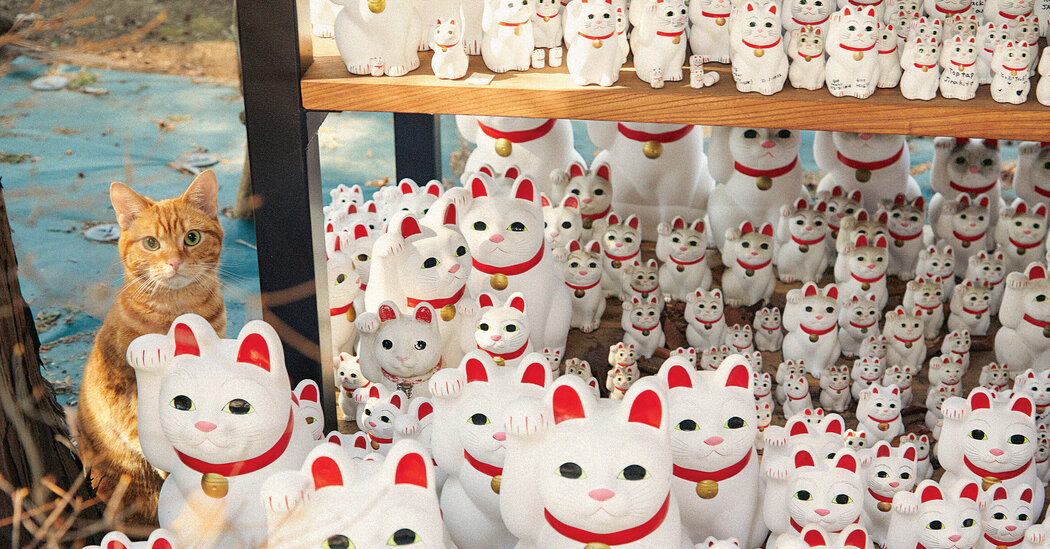THE JAPANESE, OF course, aren’t the only culture that loves cats, nor can one argue that they love them more than anyone else. But one might be able to say that they’ve spent more time mythologizing them than anyone else.
One might even say that the Japanese regard the cat with something more complicated and therefore powerful than love: fondness, yes, but also fear and awe. There are sacred animals in Japan — most notably the deer, which in Shinto, the most dominant of the country’s native belief systems, is often believed to be the messenger of the gods — but the cat might be said to be more closely related to a different group of animals, one that includes foxes and badgers: animals that must be appeased.
The Japanese have a wary affection for foxes, which across East Asia are known for being shape-shifters. While not always malevolent, they’re noted pranksters, and a good deal of time is spent trying to keep them happy. An Inari jinja, or Inari shrine, is a type of Shinto shrine popular with businessmen and housewives alike, as it celebrates a god, the kami Inari, who’s known for protecting wealth, the household, rice, sake and foxes. Over time, though, Inari’s various beneficiaries have come to be symbolized by the kitsune, or fox. It is the fox, not Inari, who likes rice; the fox one asks for good luck. At one of the country’s most famous and beautiful Inari shrines, the 15th-century Fushimi Inari Taisha in southern Kyoto, there are dozens of stone carvings of foxes, at whose feet people have left packages of Inari sushi, sushi rice wrapped in pockets of deep-fried tofu, said to be foxes’ favorite food. Foxes are also known to take the form of beautiful women, so they might seduce some hapless man for fun or money; I once went to Fushimi with my friend Bitter, until recently also a Tokyoite, who was convinced that every third woman we saw was a fox in disguise. “Did you see her?” he whispered as a pretty young woman in a long black pleated skirt walked past us. “She has to be a fox.” Then there’s the badger, or tanuki, which is technically a Japanese raccoon dog, although colloquially, “tanuki” can also refer to an actual badger. Tanuki are Falstaffian figures: big-bellied, jolly, drunk, playful (the popular rendering of the tanuki shows him wearing a straw traveler’s hat, grasping a bottle of sake), but dim and undependable. They, too, are shape-shifters, though their intentions are less nefarious and more selfish…
Click Here to Read the Full Original Article at NYT > Travel…
